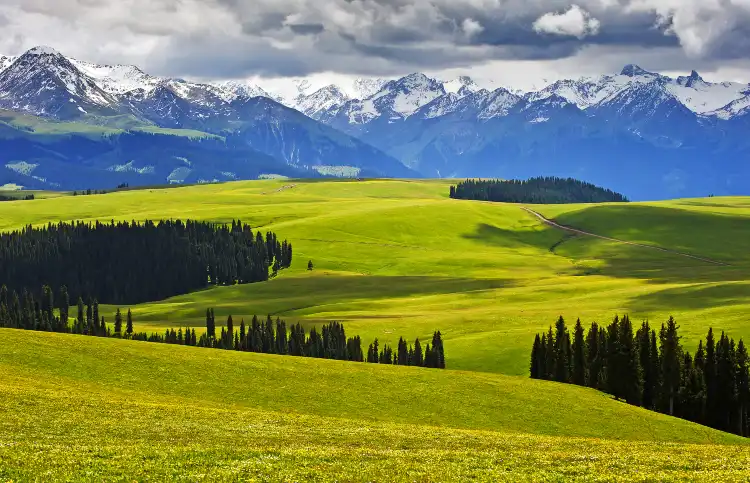
Upptäck din vistelse i Tekes County
Ange dina resedatum för att se de senaste priserna samt tillgänglighet
Svep uppåt för att visa mer
Filtrera efter:
Hotell – antal stjärnor
≤2345
Gästbetyg
Fantastiskt 9+Utmärkt 8+Bra 7+Trevligt 6+Vi har hittat 95 hotell åt dig i Tekes County
Välj dina resedatum för att se de senaste priserna.
Populärast
Lägsta pris
Närmast centrum
Bäst recensioner







84
Hotell i Tekes County
Ridning
Vandring
Gästparkering
Welcome to this B&B. We are located next to the main road in Alley 1, Arel Street, Tekes Bagua City. We have a strategic location, wide roads, and our own independent parking lot, so you don’t have to worry about where to park your car. The B&B adopts a modern minimalist style with cream style and wabi-sabi elements to create a variety of room types. The B&B rooms are spacious, bright, neat and clean, and the courtyard environment is comfortable and quiet. It is eye-catching with its high-value decoration style. Here you can meet your different pursuits of beauty, allowing you to enjoy the harmonious beauty of nature and feel at home.
Utmärkt
260 recensioner
9.9/10
1 natt
Från 229 kr




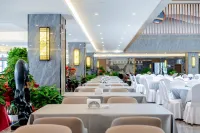


99+
Hotell i Tekes County
VIP-lounge
Träningsrum
Gästparkering
Opened in 2022, the Tekes Tianwo Hotel (Taiji Tan Branch, Bagua City Center) offers travelers a pleasant stay in Tekes, whether for business or leisure purposes. With multiple attractions nearby including Tekes County Center Tai Chi Altar, Eight-Diagram City and Gulebagh Street, guests will find plenty to keep themselves occupied. At the end of a busy day, travelers can unwind and relax in the hotel or go out and enjoy the city. This Tekes hotel provides parking on site. Germaphobes can rest easy - the level of cleanliness is highly rated at this hotel. This hotel is a popular accommodation for guests traveling with families.
Good
773 recensioner
9.1/10
1 natt
Från 157 kr
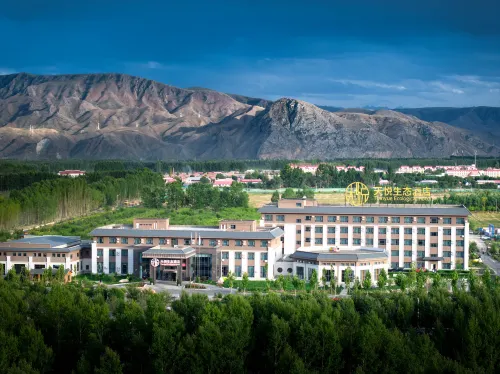

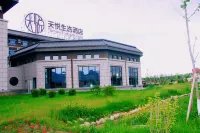


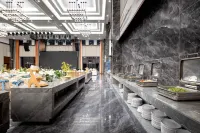

99+
Hotell i Tekes County
Utomhuspool
Vandring
Träningsrum
The Turks Tianyue Ecology Hotel is an ideal spot for travelers wanting to discover the city. The Turks Tianyue Ecology Hotel offers a pleasant stay in Tekes for those traveling for business or leisure. The nearby area boasts an abundance of attractions including E78 Campsite Park, Ili Kazakh Autonomous Prefecture · Mountain and Wilderness Camping Base and Tekes River. This hotel makes a great place to kick back and relax after a long day of sightseeing. This Tekes hotel features parking on site. If you demand a high level of service, our guests have indicated that this hotel has excellent standards. This hotel is particularly popular with those traveling with families.
Enastående
772 recensioner
9.5/10
1 natt
Från 348 kr







81
Hotell i Tekes County
Allmän parkering
Laddningsstolpar för elbilar
Reception öppen dygnet runt
Utmärkt
31 recensioner
9.9/10
1 natt
Från 248 kr
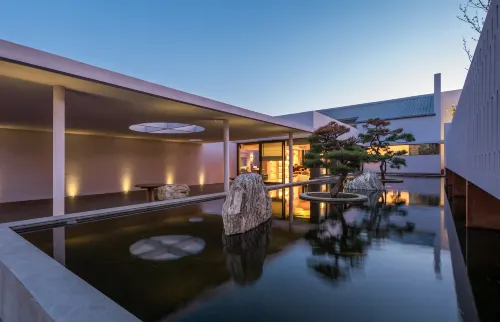






67
Hotell i Tekes County
Ridning
Vandring
Spa
Kio Fish Guesthouse - A Hidden Sanctuary of Luxury May we be more than just a resting place on your journey. Guided by light, embraced by gardens, and infused with the essence of purple, we have meticulously crafted this sanctuary for your mind and body—nestled within the ancient wisdom of the Bagua. Fourteen secluded courtyards await your arrival, offering respite from worldly cares. Here, amidst the shifting patterns of time, you may rediscover your true self
Utmärkt
23 recensioner
10.0/10
1 natt
Från 1 827 kr







83
Hotell i Tekes County
Träningsrum
Allmän parkering
Reception öppen dygnet runt
Enastående
407 recensioner
9.4/10
1 natt
Från 181 kr







99+
Hotell i Tekes County
Träningsrum
Parkering
Reception öppen dygnet runt
The Wanbang International Hotel is an ideal spot for travelers wanting to discover the city. The Wanbang International Hotel offers a pleasant stay in Tekes for those traveling for business or leisure. This hotel is located near many of Tekes's attractions including I Ching Cultural Park, Eight-Diagram City and Hot Spring Sauna Room. This hotel makes a great place to kick back and relax after a long day of sightseeing. This Tekes hotel offers parking on site. According to our guests, this hotel provides a very high level of service. This hotel is a popular accommodation for guests traveling with families.
Enastående
727 recensioner
9.4/10
1 natt
Från 178 kr







99+
Hotell i Tekes County
Utomhuspool
Ridning
Vandring
The hotel is a collection of rooms, catering, conference, leisure in one. The single room, standard room, luxury single room, luxury suite, parent-child suite and presidential suite all have central air conditioning, and have a number of service facilities including Chinese and Western restaurants that can accommodate 200 people. Simple and fashionable decoration design and supporting facilities can meet the individual needs of different guests.
Enastående
1203 recensioner
9.4/10
1 natt
Från 402 kr
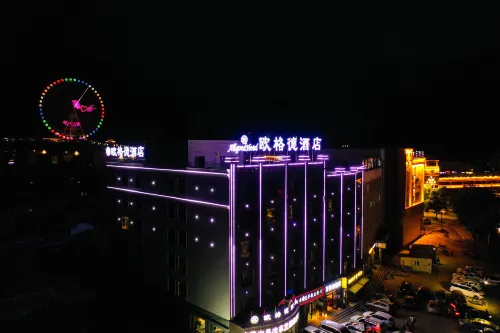






85
Hotell i Tekes County
Ridning
Vandring
Träningsrum
The Ougede Hotel (Bagua City Branch) is an ideal spot for travelers wanting to discover the city. Visitors to Tekes will find that the Ougede Hotel (Bagua City Branch) is a fantastic accommodation choice. With multiple attractions nearby including Tekes Museum, Tekes County Center Tai Chi Altar and Hot Spring Sauna Room, guests will find plenty to keep themselves occupied. After a long day of sightseeing, guests can retire to the comfort of the hotel. Guests of this Tekes hotel can make use of the parking facilities. Our guests consider this hotel to have excellent service. This hotel is a popular accommodation for groups of friends traveling together.
Enastående
669 recensioner
9.5/10
1 natt
Från 147 kr
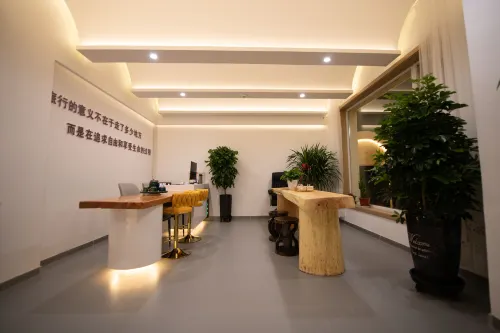
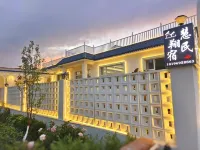




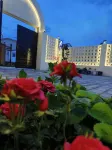
90
Hotell i Tekes County
Allmän parkering
Reception öppen dygnet runt
Bagageförvaring
1. L ook for exotic Tai Chi culture. Walking in the journey, to stay away from the street, homestay is located in Teck County, Xinjiang, is in the center of the street, close to Taiji Tan, Saosi Hua Jiang (Bagua Night), I Ching Cultural Park, 25 kilometers from the Kalajun Prairie, 17 kilometers from Aktas, Qiongkushtai and other tourist attractions, take you to the Bagua City. 2, to the feeling of your home, each hostel is carefully built IKEA style, simple modern style, romantic exotic style, each room will give you adifferent visual and comfortablecoexistence of the experience。
Utmärkt
116 recensioner
9.8/10
1 natt
Från 138 kr
Upptäck trendiga platser i Tekes County
Hitta populära attraktioner och platser i Tekes County
Landmärken
Eight-Diagram City
60 hotell
Qiongkushitai Village
33 hotell
Kalajun National Park
33 hotell
Departure from the street
59 hotell
Jonkushitai Village
31 hotell
Qiongkushitai Purple Flower Slope
31 hotell
Vanliga frågor om Tekes County
Vilka hotell är populära i Tekes County?
Tekes County har många populära hotell. Oavsett om du är på affärsresa eller semester är JI hotel (från 134 kr), Wanbang International Hotel (från 238 kr) och qianhan (från 171 kr) populära hotell.
Vad är det genomsnittliga rumspriset för hotell i Tekes County?
För hotell i Tekes County är det genomsnittliga priset för veckodagar 710 kr medan det genomsnittliga rumspriset på helger (fredag–lördag) är 708 kr.
Vilka lyxhotell rekommenderas i Tekes County?
Tekes County har många lyxhotell med olika stilar och Turks Hengtong International Hotel (från 426 kr) och Turks Tianyue Ecology Hotel (från 348 kr) är mycket populära.
Vilka hotell i Tekes County erbjuder frukost av hög kvalitet?
Turks Hengtong International Hotel (från 426 kr),Turks Tianyue Ecology Hotel (från 348 kr) och Wanbang International Hotel (från 238 kr) erbjuder frukost av hög kvalitet. Starta dagen med en god frukost!
Vilka hotell i Tekes County rekommenderas för resenärer med barn?
JI hotel (från 134 kr), Wanbang International Hotel (från 238 kr) och MEHOOD LESTLE The Traxland Hotel (från 201 kr) är mycket lämpliga för familjeresor. Njut av en resa tillsammans med barnen och andra familjemedlemmar!
Vilka hotell i Tekes County erbjuder fitnessfaciliteter?
JI hotel (från 134 kr), Wanbang International Hotel (från 238 kr) och MEHOOD LESTLE The Traxland Hotel (från 201 kr) erbjuder fitnessfaciliteter. Tillfredsställ ditt träningsbehov även när du reser!
Vilka hotell i Tekes County tillåter sällskapsdjur?
MEHOOD LESTLE The Traxland Hotel (från 201 kr), Yiyao Hotel (Taiji Altar Branch, Tekes Eight Trigrams City) (från 281 kr) och Tex Mira International Hotel (från 239 kr) tillåter sällskapsdjur. Ta med dig dina sällskapsdjur under din vistelse!
Vilka hotell i Tekes County har pool?
Turks Hengtong International Hotel (från 426 kr), Turks Tianyue Ecology Hotel (från 348 kr) och Zhaolan Light Luxury Vacation Homestay (Tekes Bagua City Store) (från 292 kr) är hotell med pool. Bo på något av de här hotellen för att ta ett dopp i en pool!
Vilka hotell i Tekes County erbjuder gratis Wi-Fi?
Oavsett om du är på affärsresa eller semester är en internetanslutning en nödvändighet. JI hotel (från 134 kr), Wanbang International Hotel (från 238 kr) och qianhan (från 171 kr) är populära hotell med gratis Wi-Fi.
Vilka hotell i Tekes County har span som är värda att besöka?
Känner du dig trött efter resan? Purple House Koi Pond Courtyard Guesthouse (från 2 812 kr) erbjuder spatjänster som fått höga betyg.
Vilka hotellkampanjer finns tillgängliga i Tekes County?
Trip.com tillhandahåller olika kampanjer och rabatter för användare året runt. Du kan ta en titt på kampanjsidan för att se vilka kampanjer som är tillgängliga på Trip.com.
Hotellinfo för Tekes County
Högsta pris
788 kr
Antal recensioner
23,039
Antal hotell
95
Genomsnittligt pris (vardagar)
710 kr
Genomsnittligt pris (helger)
708 kr
Rekommendationer
Mest visade hotell
Shanchi Muyun HomestayExplore hidden places and rural villagesJoan Kushtai Tingyu Villa2078 Cloud HotelKalajun County Endless Land Luxury Camp Hotel Management Co., LtdTekes Shanjian Yunhai HomestayTekes 13th Lane HomestayKala Junyue HomestayTexjoon Kush Taiyun Muchuqiong HomestayTekesi Phoenix International Hotel
Flyg från populära städer
Flyg till Karlstad från LuleåFlyg till Sälen från KalmarFlyg till Luleå från SvegFlyg till Umeå från TrollhättanFlyg till Gällivare från UmeåFlyg till Vilhelmina från GöteborgFlyg till Östersund från VäxjöFlyg till Hemavan från LuleåFlyg till Stockholm från LuleåFlyg till Luleå från MalmöFlyg till Bosaso från GöteborgFlyg till Damaskus från GöteborgFlyg till Sanya från GöteborgFlyg till Lissabon från KramforsFlyg till Rovaniemi från ÖstersundFlyg till Mosjøen från ÖstersundFlyg till Pescara från SkellefteåFlyg till Aleppo från StockholmFlyg till Damaskus från StockholmFlyg till Pristina från VäxjöFlyg till Bangkok från GöteborgFlyg till Erbil från GöteborgFlyg till Sulaymaniyah från GöteborgFlyg till Las Palmas de Gran Canaria från GöteborgFlyg till Kemi-Torneå från GöteborgFlyg till Asturias från GöteborgFlyg till Pristina från GöteborgFlyg till Skopje från GöteborgFlyg till Sharm el-Sheikh från GöteborgFlyg till Sydney från Göteborg